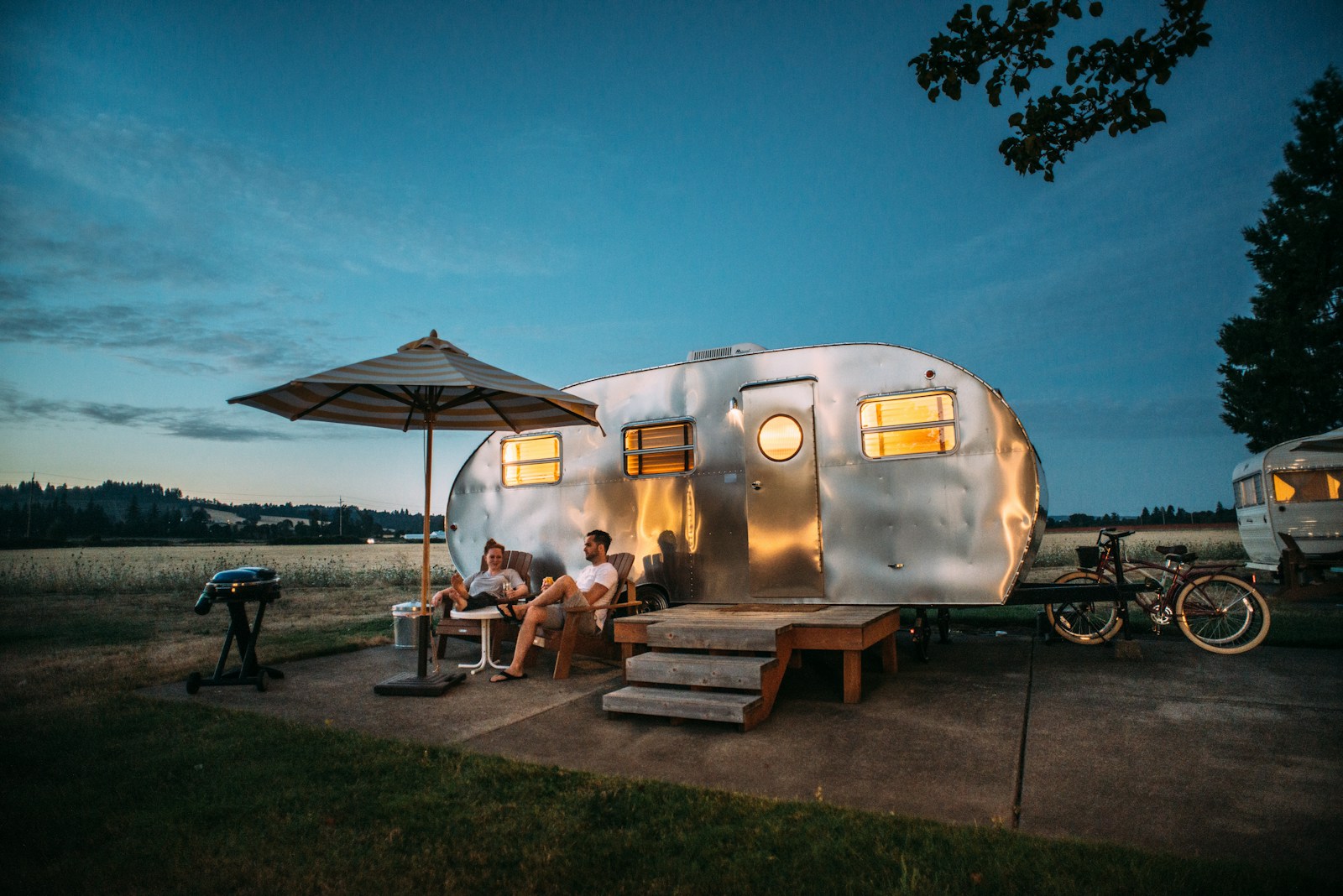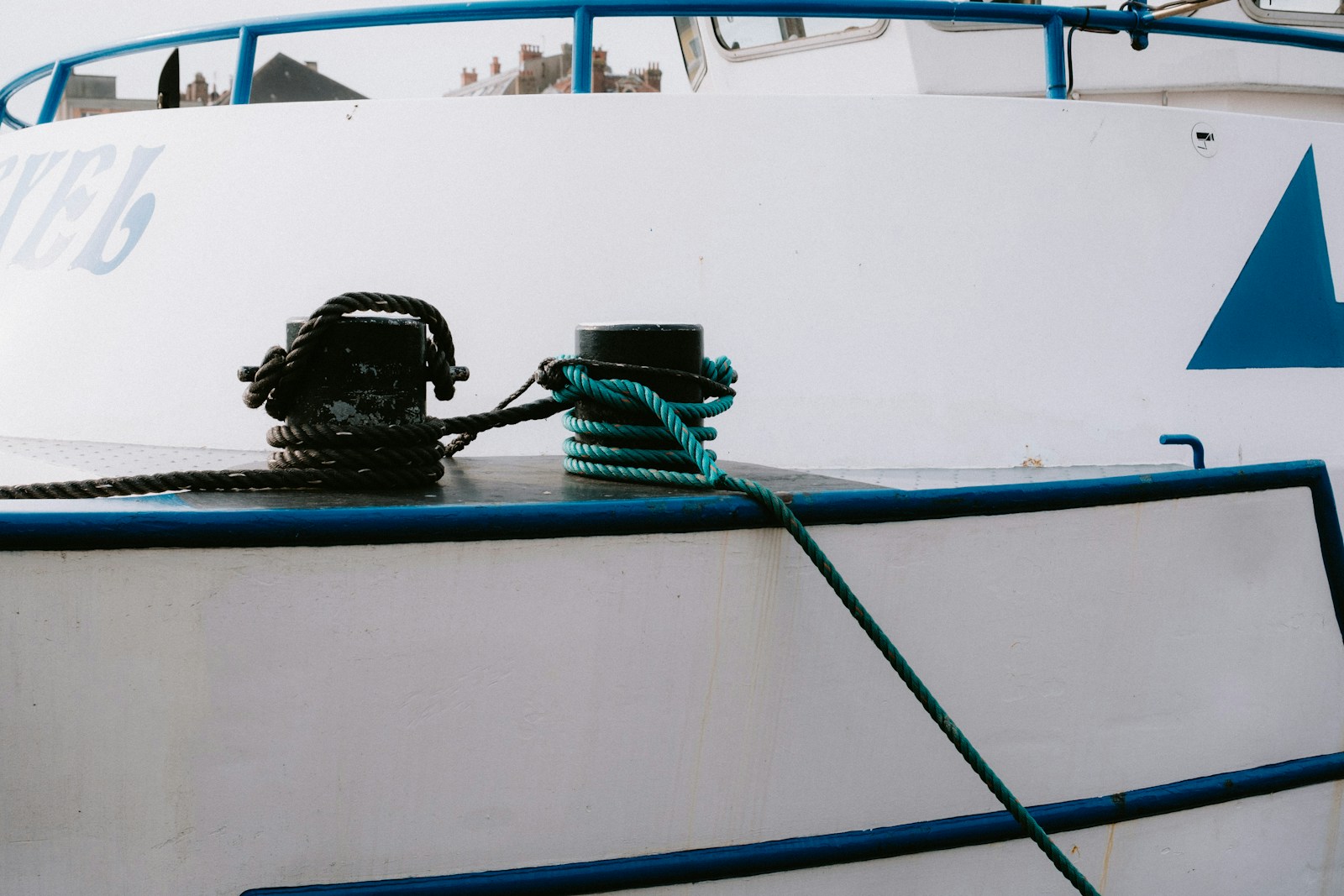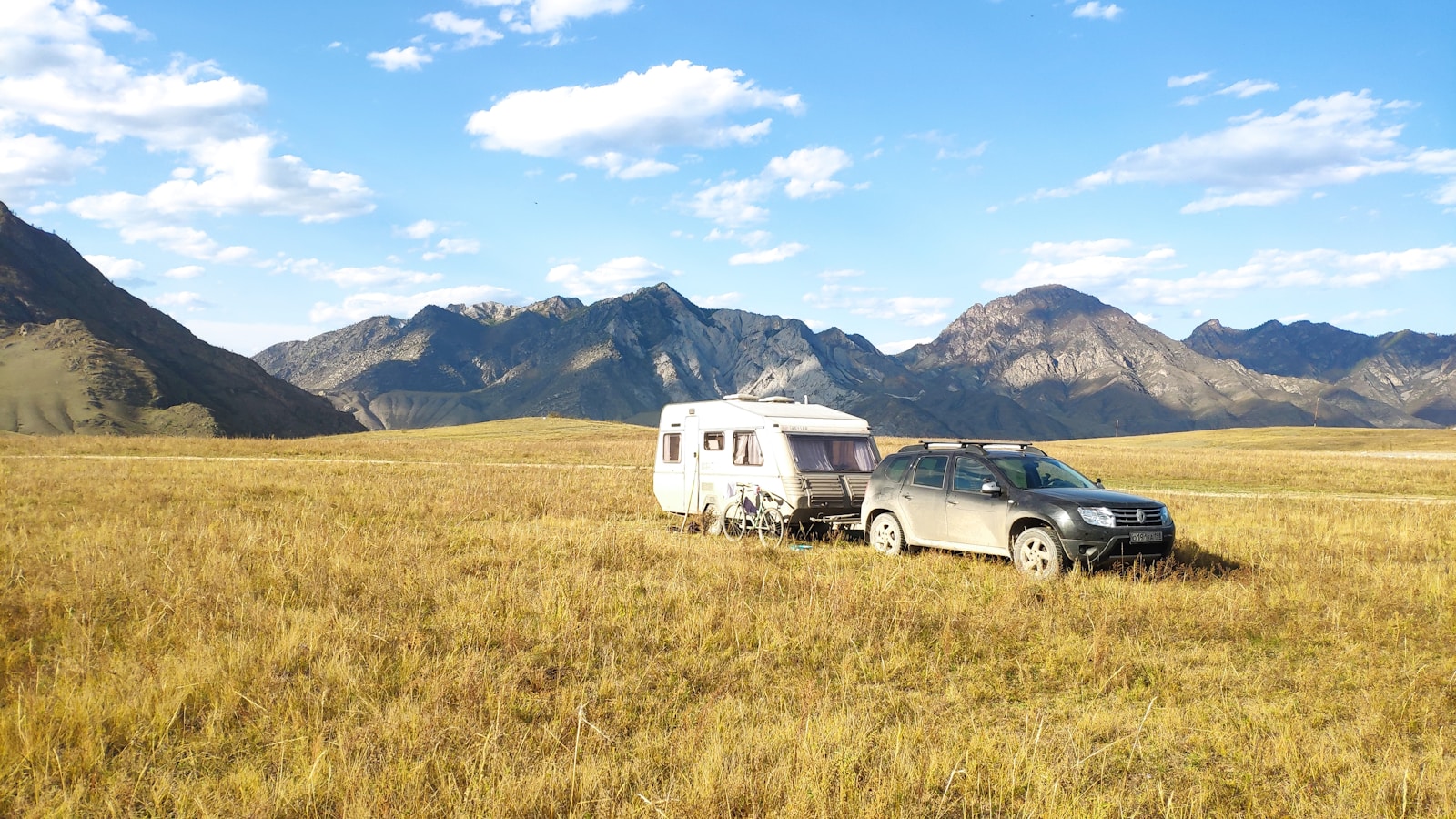When it comes to RV travel, adventure is the name of the game. But no matter how well-prepared you are or how much you plan ahead, things can still go wrong on the road. One of the most common problems faced by RV travelers is the need for towing.
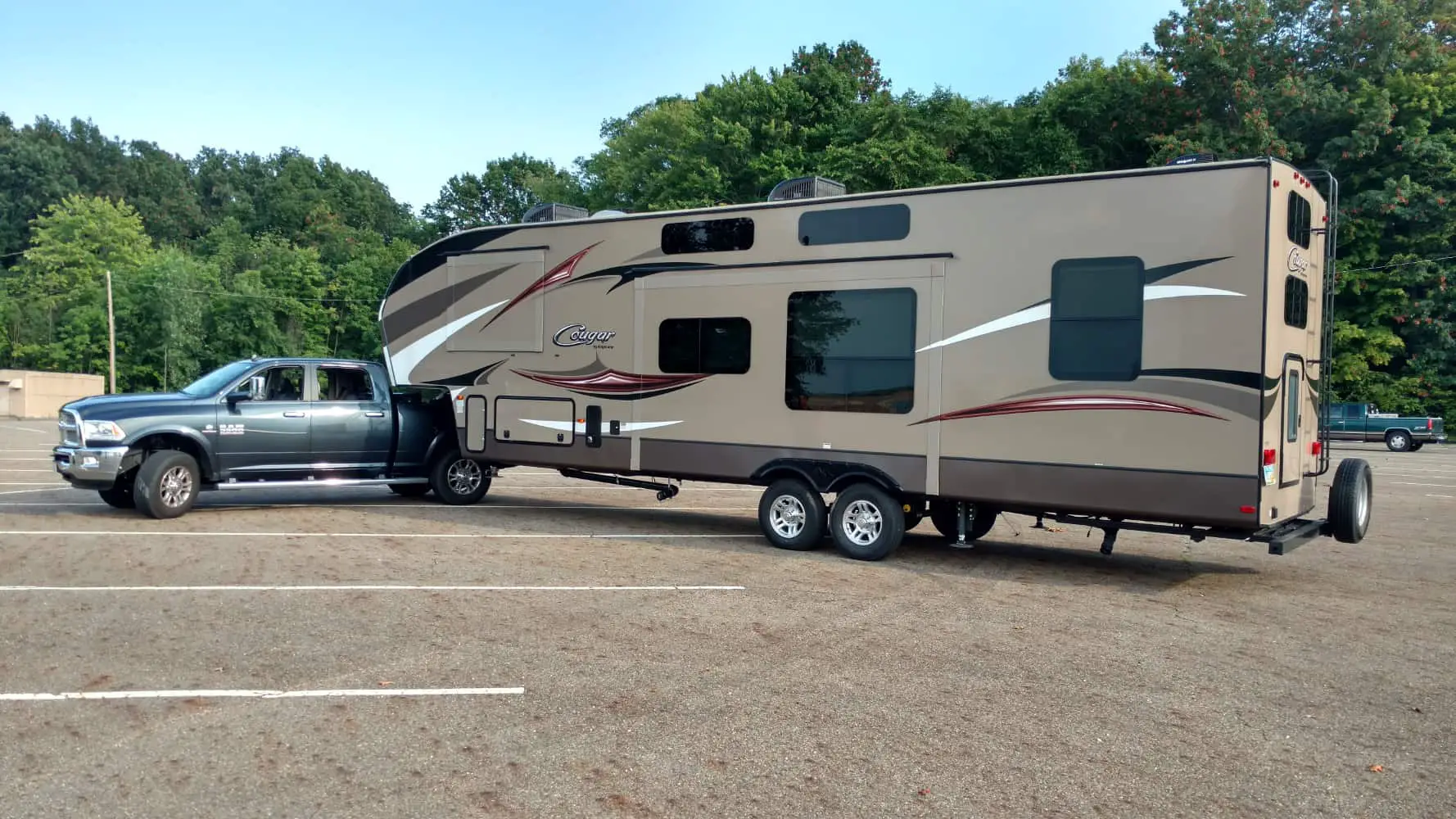
Common Reasons You May Need RV Towing
Mechanical Problems
Like any vehicle, an RV can face a variety of mechanical issues. Some of the most common reasons why an RV might need to be towed include engine trouble, transmission problems, or issues with the brakes.
Tire issues can also lead to the need for towing, especially if a blowout causes damage to the wheel well. Regular maintenance and safety checks before heading out on a trip can help avoid many of these issues, but it’s essential to be prepared for the unexpected and have a plan in place for towing your RV if necessary.
Accidents
No one likes to think about getting into an accident, but unfortunately, it does happen. When an RV is involved in an accident, it may be too damaged to drive or may even be totaled.
In these cases, towing is necessary to transport the RV to a repair shop or to your home. It’s essential to have good insurance coverage in place to help cover the costs of towing, repair, or replacement.
Improper Loading and Overweight
Overloading your RV can lead to several issues, including excess wear and tear on the vehicle, reduced fuel mileage, and increased risk of accidents on the road. Following manufacturer guidelines for weight limits is essential to avoid overloading.
Overloading not only puts excess stress on the vehicle, but also on suspension, axles, and tires. Towing is often required if your RV is overweight.
Flat/Battery Issues
Flat tires and dead batteries are common issues that can leave your RV stranded on the side of the road. Changing flat tires on an RV can be a difficult process.
A spare tire is often carried, but changing the tire on the RV may not be a DIY job. And, an RV battery can be hard to diagnose, and changing it can be too complicated for an average driver.
Bad Weather
If a natural disaster or severe weather strikes, towing may be necessary if your RV becomes stuck. Blizzards, severe rain, and flooding can leave RVs stranded and in need of assistance.
Planning and proper weather equipment is important to avoid getting stuck in the first place, but if towing is necessary, it’s important to have a plan and emergency contacts in place.

Why You Should Hire a Professional to Tow Your RV or Camper
Are you someone who loves to travel in an RV or camper? Planning a road trip with your loved ones in the comfort of your RV or camper is an excellent idea to create memories.
However, one of the most crucial aspects of this type of vacation is safe handling and towing of your RV or camper. It’s not an easy task to haul an RV or camper, and that’s why hiring a professional towing company is the best option.
Knowledge and Experience
Professional towing companies have trained and experienced personnel to handle the entire towing process. With years of experience, they know how to move an RV or camper properly and safely, ensuring that it gets to its destination without any issues.
They are also knowledgeable about the latest towing equipment and techniques, making it easier to avoid any accidents during transportation.
Proper Equipment
Towing an RV or camper requires the right equipment. Professional towing companies have the appropriate equipment, including tow trucks, trailers, hitches, and more, to ensure your RV or camper is transported safely.
They use the proper techniques, such as weight distribution, to ensure that your vehicle is securely attached to the tow vehicle, avoiding accidents or damage during transport.
Hassle-free Towing
Professional towing companies understand that towing an RV or camper can be stressful, especially if you’re doing it for the first time. But when you hire a professional company, you don’t have to worry about anything.
They handle everything from loading your RV or camper onto the tow truck, to attaching it, to moving it, to unloading it at the destination, ensuring that you have a hassle-free experience.
Saves You Time and Money
If you decide to tow your RV or camper by yourself, you’ll have to invest a lot of your time and resources learning how to tow an RV or camper, buying the right equipment, and taking care of it.
With a professional towing company, you don’t have to worry about any of these things. They have all the necessary equipment and knowledge to complete the task in the shortest time possible. This approach saves you both time and money, allowing you to focus on enjoying your vacation.
Peace of Mind
The safety of your RV or camper is a top priority during transportation. Hiring a professional towing company ensures that your RV or camper is in good hands and that it arrives at its destination intact.
Additionally, if any accidents or damage occurs during transport, a professional towing company is insured, giving you peace of mind that you will receive compensation for any losses.
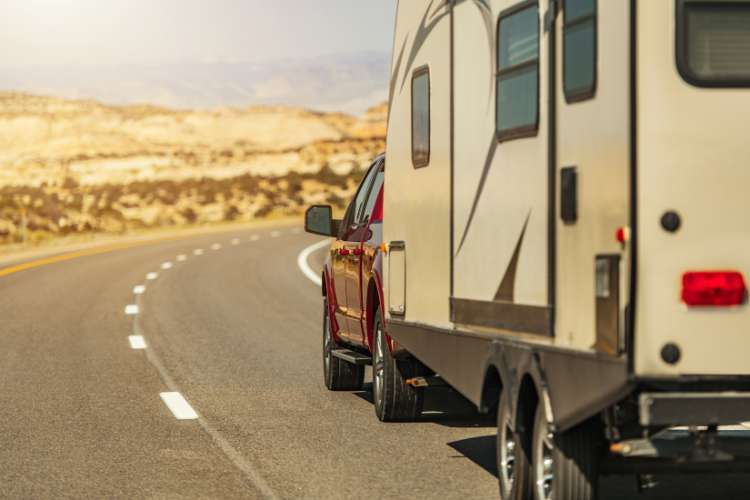
The Ultimate Towing Guide to RV Towing Yourself
RV trips are a delight for adventure enthusiasts, families, and all those who just want to hit the road for a relaxing getaway. For all RV enthusiasts out there, towing is an essential part of the experience.
Towing your RV provides the freedom to explore different campsites, parks, and locations without being confined to a single spot. But, towing an RV can be tricky if you don’t have the right knowledge. So, in this guide, we will discuss everything you need to know about RV towing.
Choosing the Right Tow Vehicle
Choosing the right towing vehicle is the first and foremost step for a smooth RV towing experience. The vehicle you choose should be capable enough to handle the weight and size of your RV.
The maximum towing capacity of the vehicle is a vital factor when selecting a towing vehicle. You can find the towing capacity and the gross vehicle weight rating of the vehicle in the owner’s manual or through an online search.
Selecting the Right Type of Hitch
There are various types of hitches available in the market, including the fifth wheel hitch, weight-distributing hitch, gooseneck hitch, and standard hitch.
Choosing the right hitch is crucial for safe and stable towing. Make sure to select a hitch based on the towing capacity of your towing vehicle and the size and weight of the RV. You can take advice from an RV towing company to choose the appropriate hitch.
Proper Weight Distribution
RVs have different weight distribution for the front and backside. A weight distribution system is essential to ensure that the weight is evenly distributed throughout the RV. It prevents the RV from swaying and reduces the stress on the tow vehicle.
The weight distribution system will also protect the tires, brakes, and suspension system from getting overworked and breaking down. You also need to be aware of the vehicle’s towing capacity to safely tow your rig. You should not exceed the max towing capacity of the specific vehicle.
Properly Equipped Brake System
An appropriately equipped brake system is a mandatory requirement for towing an RV. It is essential to have a brake system that can handle the extra weight of the RV.
The braking system allows you to control the RV better, especially going down steep hills. Make sure to check your brake system and keep it well-maintained for a safe towing experience.
Hire a Professional Towing Company
Hiring a professional RV towing company is always a great choice when you are planning for an RV trip. They have the expertise, tools, and skills to provide a smooth and stress-free towing experience.
However, it is crucial to select a reliable and experienced company that can give you the best service. Look for a company that is licensed, insured, and has a good track record.
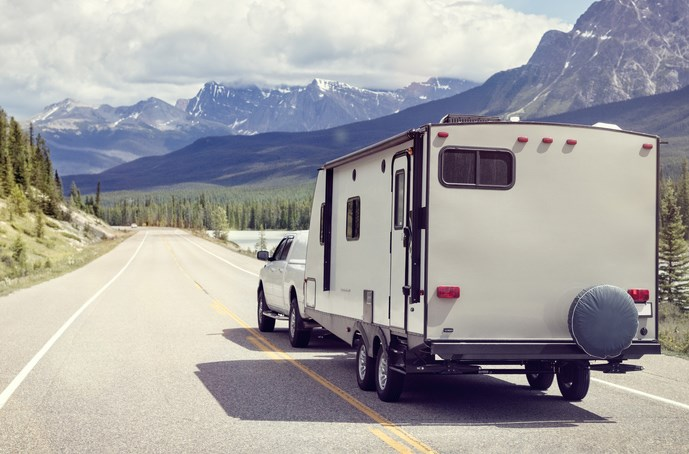
RV Towing Weights You Should Be Aware Of
One of the most important considerations for towing your RV is the weight restrictions and limits, which have a direct effect on your safety and fuel efficiency.
Gross Vehicle Weight Rating (GVWR)
One of the fundamental weight ratings for towing an RV is the GVWR, which represents the maximum weight capacity of your RV, including all the cargo, water tanks, propane tanks, and passengers.
Therefore, you should ensure that your towing vehicle can handle the total GVWR of your RV, or else you’ll risk damaging your pick-up truck.
Trailer Weight
Another critical weight rating when towing your RV is the trailer weight. This weight rating determines the overall weight of your RV, including all the essentials and luxuries.
Before you set off on your trip, take care to ensure that your RV trailer weight is compatible with the towing vehicle’s maximum weight capacity.
Tongue Weight
The tongue weight is a critical weight rating when towing an RV, as it directly impacts your vehicle’s control and handling abilities. The tongue weight is the downward force exerted on your towing vehicle hitch’s ball and can stabilize the RV.
Keeping the tongue weight between 10% and 15% of your trailer weight will ensure better handling and control.
Gross Combined Vehicle Weight (GCVW)
The GCVW is the total weight of both your RV and your tow vehicle. To ensure your safety while towing an RV, the GCVW rating shouldn’t exceed your towing vehicle’s maximum capacity.
Overloading your towing vehicle and RV can result in significant safety issues, including brake failure and sway.
Payload Capacity
The payload capacity is a weight rating for trucks that determines the maximum weight that your vehicle can carry in its bed.
If your vehicle’s payload capacity is less than your RV’s net weight, it can cause tire failure, suspension, and brake issues.
You May Want To Hire A Professional Hauler
Towing an RV requires a comprehensive and thorough understanding of the various weight restrictions and limits.
Always remember that exceeding any of the weight ratings above can pose significant safety issues and cause damage to your towing vehicle, as well. To avoid causing any mishaps, it’s best to consider hiring a professional RV towing company.
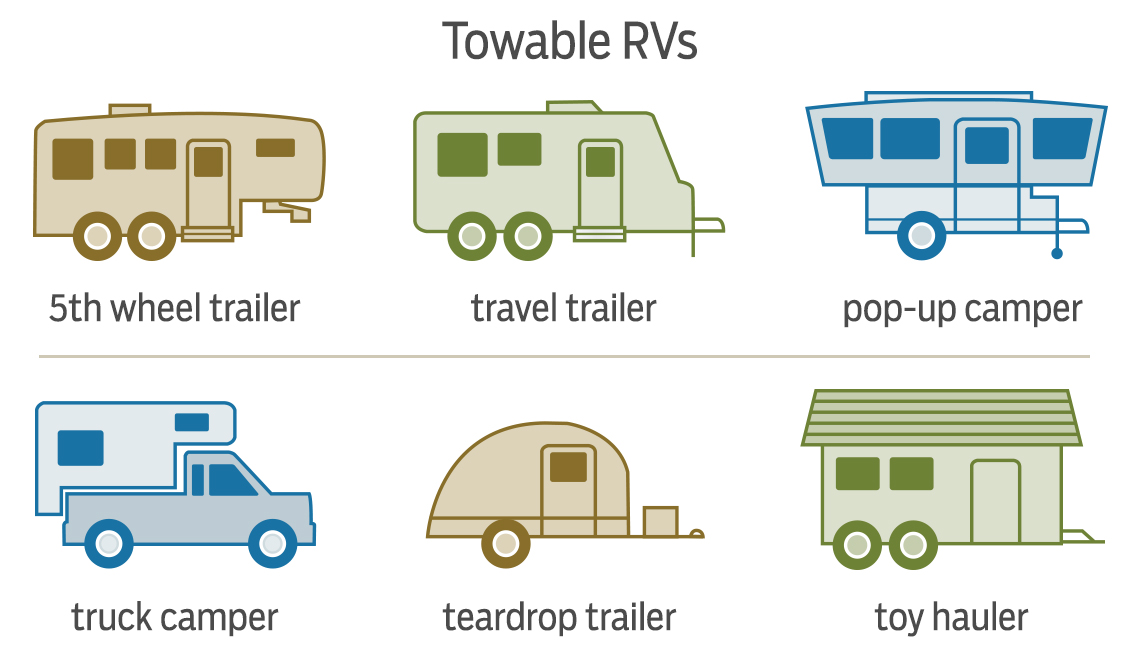
How to Find the Right RV Hauling Company
If you’re an avid RVer, chances are you’ve run into a situation where you need a tow. Perhaps your RV experienced mechanical issues on the road, or you got stuck in a muddy campground.
Whatever the reason, it’s essential to find a reliable RV towing company that can transport your motorhome, travel trailer, or fifth wheel safely. But how do you go about finding the right towing company for your needs?
Ask for Referrals
One of the best ways to find a trustworthy RV towing company is to ask for referrals. Talk to other RVers you know, and see if they can recommend a company.
Word-of-mouth referrals are often the most reliable, as they come from people you trust who have had direct experience with the towing company.
Check Reviews
If you can’t get a personal referral, the next best thing is to check online reviews. Look for reviews on websites like Yelp, Google, and Facebook. Read through both positive and negative reviews to see what people are saying about their experiences with the company.
Verify Insurance and Licensing
Before hiring an RV towing company, make sure they are properly licensed and insured. You don’t want to risk working with a company that is not qualified or lacks the proper insurance coverage.
Verify their license and insurance information through their website or by speaking directly with a representative.
Get Price Quotes
Once you’ve narrowed down your list of potential RV towing companies, it’s time to start getting price quotes. Get multiple quotes from different companies to compare prices. Keep in mind that the lowest price does not always indicate the best value.
Always consider factors like company reputation, experience, and service offerings when making a decision.
Evaluate Service Offerings
Finally, make sure the RV towing company you choose offers the services you need. For example, if you have a large, heavy Class A motorhome, not all towing companies may have the necessary equipment to transport it safely.
Similarly, if you require special towing services like winching or crane services, make sure the company offers these services.

Do You Need RV Towing?
As an avid RV traveler, you know just how important it is to have a reliable method of transportation for your home on wheels. But what happens when your trusty RV breaks down or needs to be towed? That’s where Interstate Haulers comes in.
With our fleet of trucks and experienced team of drivers, we’re equipped to handle towing vehicles of all sizes and weights. We understand that many RVers often carry other cargo in addition to their recreational vehicle, which is why our trucks have roomy truck beds to accommodate all your belongings.
Don’t let an unexpected breakdown leave you stranded – reach out to us at Interstate Haulers for all your towing needs.
RV’s We Can Haul
- Bumper Pulls
- Fifth Wheels
- Toy Haulers
- Towable RV
Where We Transport
- Continental USA
- We Ship Into and Out of Canada
- US Ports (for International Shipping)
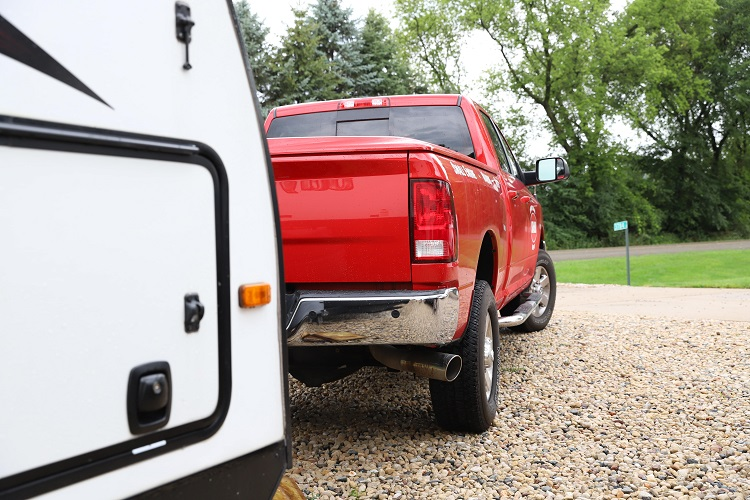
Conclusion
As an RV owner, you never know when you might need to have your vehicle towed. Mechanical problems, accidents, improper loading and overweight, flat/battery issues and bad weather are some of the most common reasons why an RV might need to be towed.
Preparing for emergencies, staying alert, following manufacturer guidelines, and having a skilled towing company on speed dial are recommended to ensure you have the proper support if and when the time comes. With some pre-planning, you can avoid common pitfalls and enjoy the open road with peace of mind.


